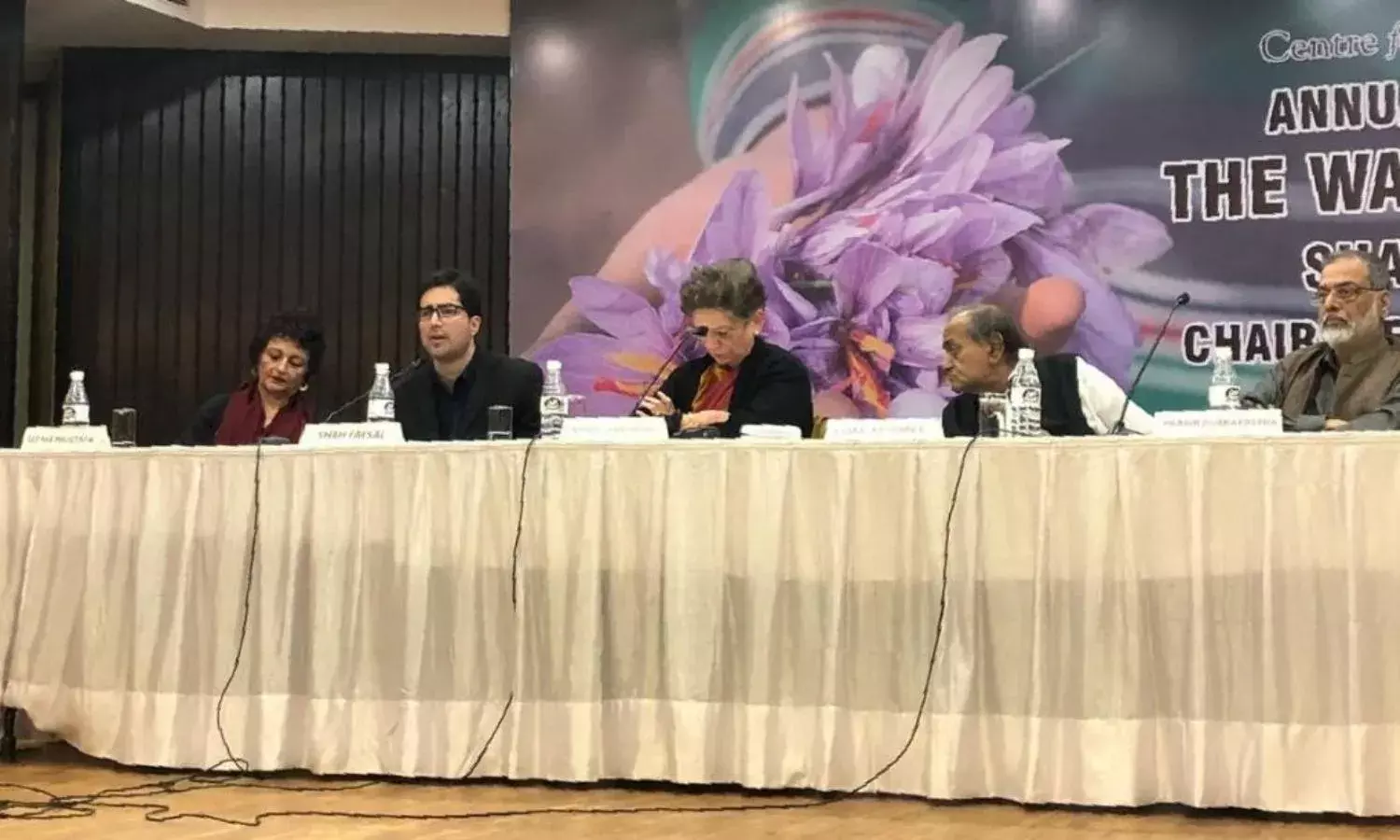Shah Faesal Cuts Through Calls for Blood and Lays Out a Roadmap for Kashmir
"Whose violence to condemn, and whose to condone.”;

NEW DELHI: The Centre for Policy Analysis (CPA Delhi) hosted an intense panel discussion on Friday on the way forward in Kashmir, featuring the soft spoken Shah Faesal, who's being talked up as the bright spark in the next generation of valley politics. This evening had already been planned way before the Pulwama attack, but the unfolding disaster served to thrust it in the glare. New panelists were added at the last minute, and the seminar hall was packed beyond capacity.
The moderator, Neera Chandok, emphasized the need for "empathy to victims of violence irrespective of religion and political sides", also stressing that a retaliatory wave of more violence would not be a solution. Shah Faesal then held the floor for a considerable length of time, and there was relevance and balance in most of what he said. One could sense that he was placed on a tight rope, but he commanded the space expertly. The first point he made was about the confounding moral dilemma of Kashmiris - "whose violence to condemn, and whose to condone". For anyone even broadly familiar with how the world looks from the heart of Kashmir, this was an incisive observation.
He delved deeper into the impact of violence, making a strong case for the withdrawal of hardline policies. He noted that every time a kid was permanently injured by pellets or killed during a protest, the state lost the sympathies of that village for good. In that sense, the space for dialogue and conversation was progressively shrinking in Kashmir.
He appeared prepared for hard yards towards enlarging the democratic space in the valley, as well as humanizing the Kashmir narrative in mainstream conversation in the rest of India. In fact, he laid plain his plan of traveling the country and engaging in conversations that would make people more empathetic towards the sentiments and realities of a generation of Kashmiris who have literally grown up under the gun.
He picked up the opposite extreme of empathy too, panning our 'toxic', hyper-nationalistic newsrooms that were perpetually dishing out a poisonous narrative, openly calling for blood.
In the animated (yet civil) Q+A that followed, I managed to throw in a question on whether the democratic space he visualized in Kashmir would need to engage with the question of azaadi.
He agreed unequivocally, while craftily navigating round the word 'azaadi'. Specifically, he said that the scope of democratic conversation would need to be large-hearted and expansive. Taboo words, as he called them, would need to be brought into the fold, and definitions of 'seditious' and 'anti-national' would need to be toned down.
Asked whether Islamic fundamentalism was the cause of growing militancy and the radical notion of freedom, he flipped the argument. He saw fundamentalism as the consequence of all-pervasive violence and stifled spaces, not the cause.
Other highlights included a moving observation by an 11-year old Kashmiri girl in the audience, who asked why she had to be perpetually scared back home and face strikes and shutdowns at school three days every week, when there were no such restrictions in Delhi.
Seema Mustafa, the Director at CPA Delhi, finally closed the intellectually charged evening with a few thoughts on how the politics of funding and advertising kill freedom in media. She recalled a round table organised by CPA Delhi eight years back where, in the presence of multiple journalists, representatives of major political parties unanimously agreed that the Armed Forces Special Powers Act (AFSPA) needed to be revoked from the valley. This was headline news, but a few minutes after the evening concluded, there was a 'phone call' and the next day no one reported. The parting thought was that those of us who can, should pay generously for news - a step that would, hopefully, help restore the ideal of journalistic freedom.
Kudos to the Centre for Policy Analysis for being a rare space where a constructive conversation on Kashmir could take place, even as the noise for revenge reached a deafening pitch.
(The Citizen was alerted to this event review on Instagram. It has been published with the author’s permission)

